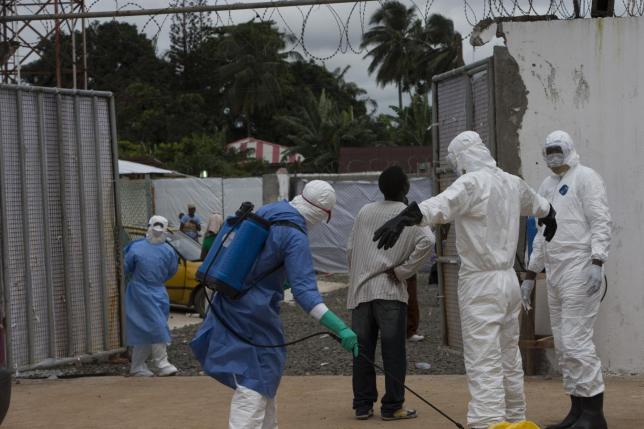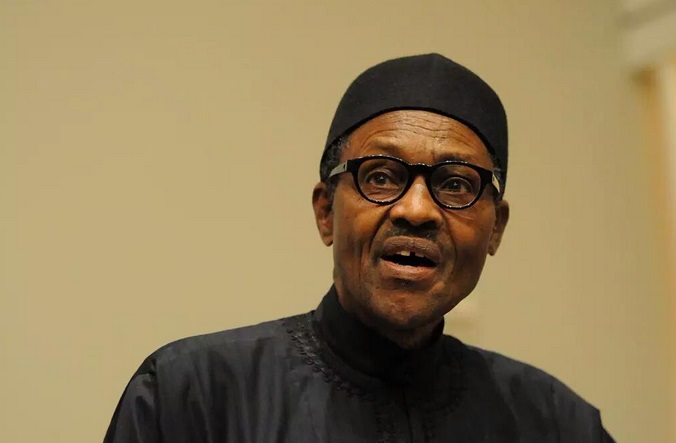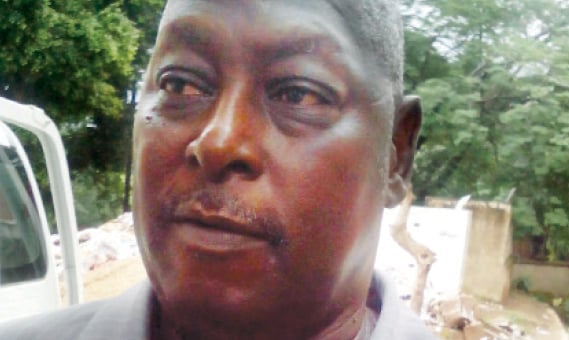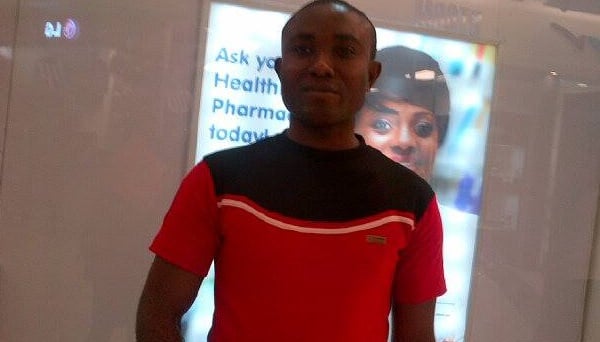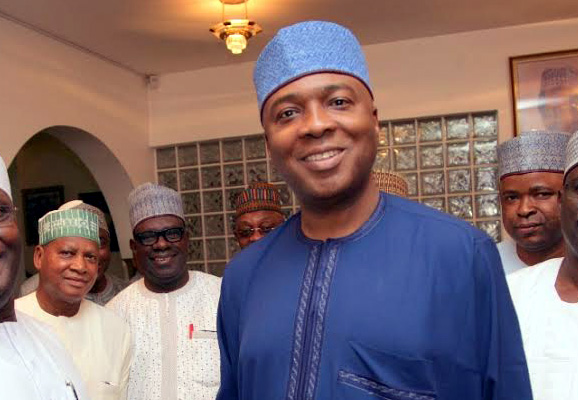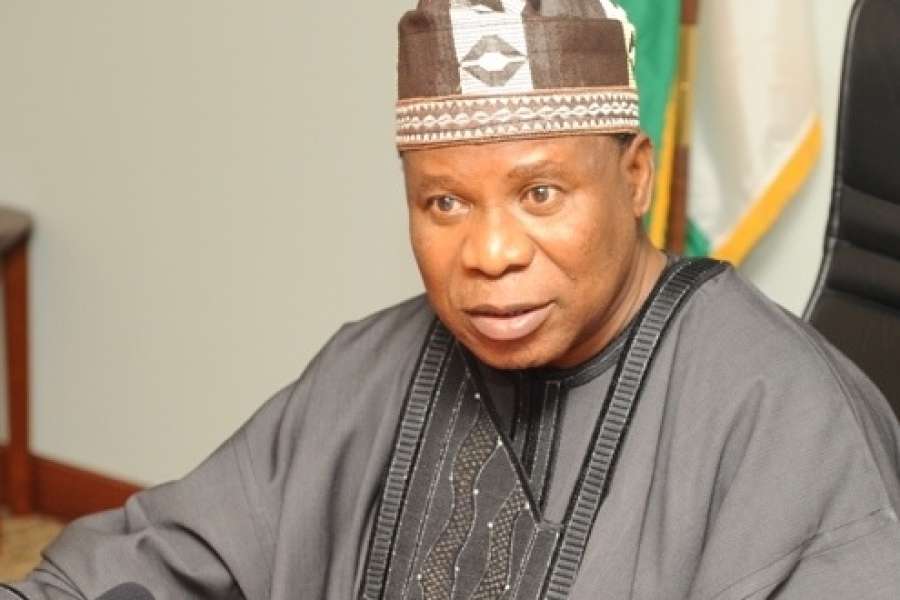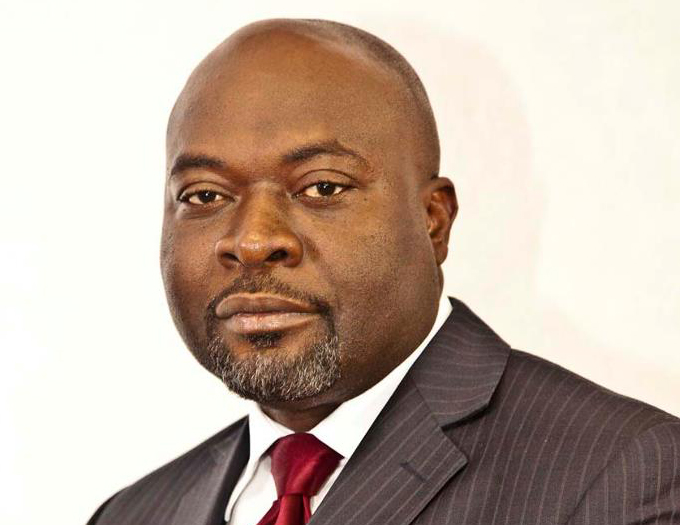The talking points of Liberia’s victory over Ebola have centred on medical and financial aid from world super powers and international agencies. But little has been said of the courage and human-capital contributions of local health workers. With a focus on Redemption Hospital, where the country’s first Ebola case was recorded, ‘FISAYO SOYOMBO tells the story of a few Ebola heroes without whom the West African country may still be under the virus’s stranglehold.
It was July 2014 and Facia McCauley had to make one of two tough decisions. One was to leave Liberia – where Ebola was on the rampage – and run as far away as she could. The other was to stay back and fight a virus about which very little was known at the time.
If she chose the former, she would undoubtedly become a villain – a traitor who abandoned her country at the pinnacle of a crisis only superseded by its two civil wars.
Choosing the latter had no guarantees for a happy ending, either. Core health workers with extensive medical education were catching Ebola and dying; there was no assurance that her fate would be different. Perhaps doctors and nurses killed by the virus would be honoured as heroes. But McCauley was just an administrative assistant. Her death, in the event that it happened, was likely to escape notice.
Advertisement
There were at least two reasons why McCauley should have run away. Her friend, Soe Wilson, had done just that and the heavens didn’t fall. Wilson was the nurse who attended to the hospital’s index case in June 2014, at a time the entire Ebola talk still passed for a myth. Naturally, after the victim, Esther Kessedy, was pronounced Ebola-positive, everyone was apprehensive. And thus began a seemingly-endless 21-day wait for the expression of symptoms of the virus, to know those who would end up at the Ebola treatment Unit (ETU) and those who would walk away free. On the 21st day and seeing that she was negative, Wilson quit her job, fled to the United States, and vowed never to set foot on Liberia again. McCauley could have acted likewise.
Soon came a second opportunity. One of the earliest Ebola patients at the hospital had died, and the family was stubbornly insisting on retrieving the body for burial. There was no better way to spread the virus. Not-too-distant Nigeria had a taste of the virus after Liberian Patrick Sawyer, an Economic Community of West African States (ECOWAS) diplomat, contracted it at her sister’s burial, and then headed for the densely-populated Lagos state. Redemption hospital was unwilling to allow a repeat. However, the deceased’s relatives laid siege on the hospital, pelting staff and threatening to break in. McCauley and other staff escaped from the building. That was one more opportunity to find permanent sanity outside the Ebola-infested hospital, but she returned after three weeks. Reminiscing on the challenges of the time, she says turning her back on the country and the Ebola-afflicted populace was never an option, although she escaped contracting the virus herself by the skin of her teeth.
DINING WITH EBOLA
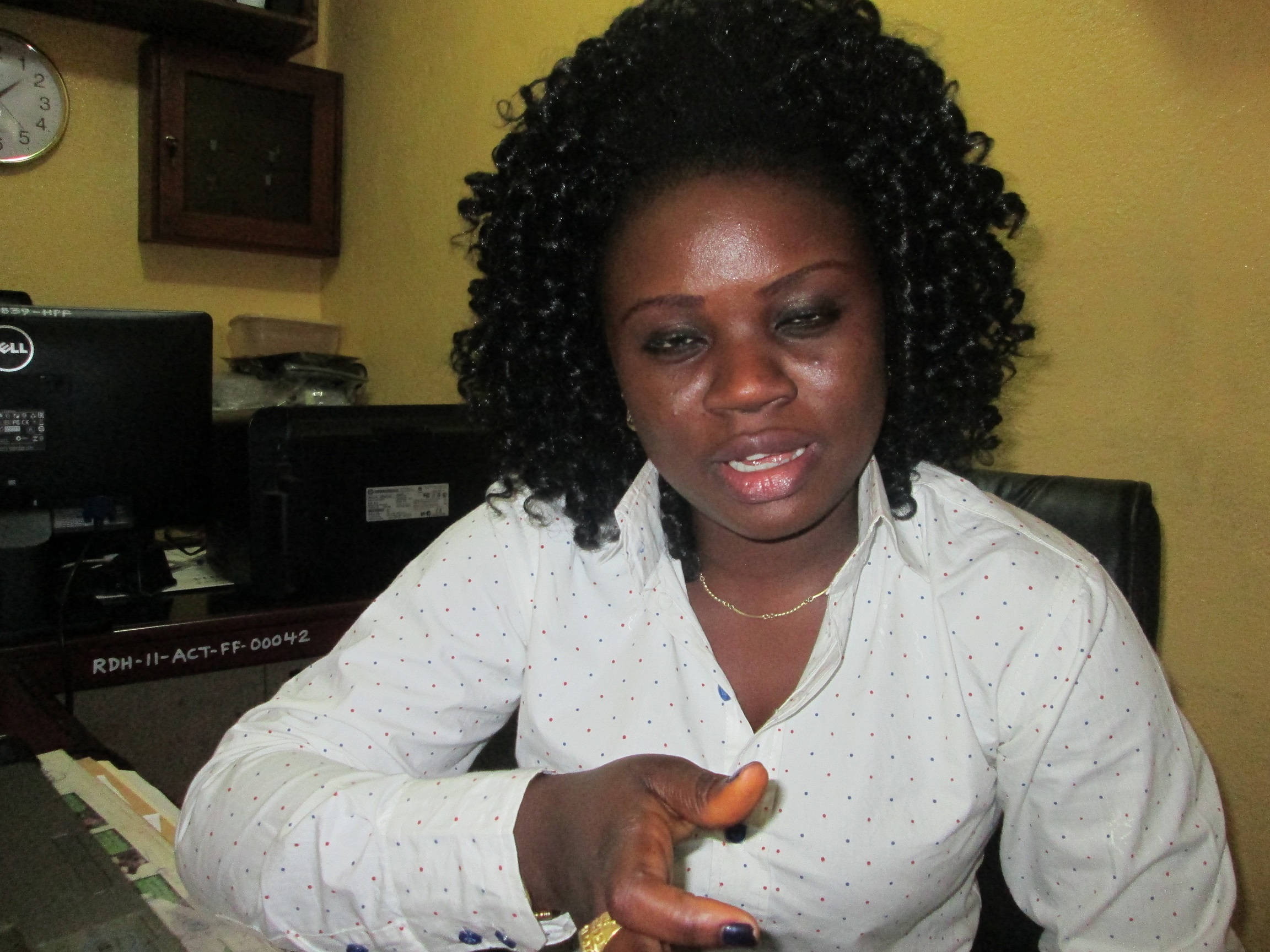
“The most fearful part for me personally was my very close friend who admitted the index case. And after treating her, she came to my office and we had lunch together. The next 21 days were so scary; very terrible,” she says.
Advertisement
“It was a very fearful experience. Any day you came to work, the moment you got close to the hospital, you started feeling sick. You felt all the signs that you were going to come down with the virus.
“But we couldn’t lock the office because of our love for the job. We wanted the hospital to be open to at least handle the few emergencies that were coming.”
McCauley is thrilled to have seen the end of Ebola, but she wishes she hadn’t seen the end of two staff of the hospital very dear to her.
“Two deaths pained me the most and I don’t think they will ever leave my mind,” she says.
Advertisement
“There was Dr. Samuel Mutoro, the surgeon from Uganda. And there was Dr. John Taban Dada, our former chief medical director. Their deaths touched me personally because I was very close to them. I will never forget them.”
FALL OF THE GENTLE GIANT
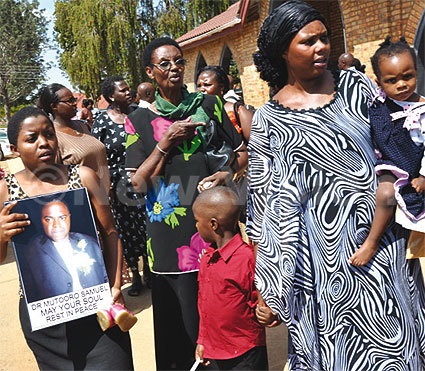
“Dr. Samuel Muhumuza Mutoro was a very gentle and calm fellow, so everybody liked him,” John Shakpeh, acting nursing director of Redemption Hospital, says of his departed colleague.
Shakpeh himself comes across as an embodiment of the very virtues he had ascribed to the late doctor. Reserved and unassuming, Shakpeh initially refuses to grant an interview on the argument that the spotlight shouldn’t be on him.
“I may be the acting nursing director, but I am not the one who fought and defeated Ebola,” he says at first – slowly but assuredly, carefully picking his words. “You will have to first speak with everyone else here who played a part. You won’t need me anymore after that. But if, after doing that, you still insist on the interview, I will answer your questions.”
Advertisement
Four-and-a-half hours later, Shakpeh – evidently a man of few words – finally accedes to the request. His answers are brief but precise; yet, as his countenance would prove anytime he talks about his time with doctors Dada and Mutoro, he is not a man without emotion.
At 55 and having worked at the hospital for 23 years, Shakpeh is no stranger to deaths. Only that the two deceased doctors were people he toiled and laughed daily with.
Advertisement
“Being the nursing director, I was in close contact everyday with most of the doctors and we, the nursing office, were controlling the number of patients that we operated,” he says, taking his eyes away from the camera as if to shield the interviewer from his sorrow.
“The very day we went to bury Dr. Mutoro, I couldn’t disembark from the vehicle and join others at the grave site to see him being lowered. It was so painful. I couldn’t even bear it.”
Advertisement
After contracting the virus from patients at Redemption Hospital, where he had been working for three years on a contract with the Liberian government and the WHO, Mutoro was treated at the John F. Kennedy (JFK) Medical Centre, the biggest hospital in the country. He died on July 01, 2014, leaving behind wife Diana Namusoke and three children, who were all in Uganda and were discouraged from travelling to Liberia for their safety.
“Mutoro died doing what he loved doing best,” Shakpeh adds.
Advertisement
Very true. In his tribute, Costa Bwambale, the late doctor’s brother-in-law, described him as “a very determined person who even repeated class in order to achieve his dream of becoming a medical doctor”.
Mutoro’s acts of courage are well-documented and predate Ebola. In fact, before travelling to Liberia, he worked at the Nakivale refugee settlement – Uganda’s oldest and largest refugee settlement covering some 180 square kilometers – in Isingiro district, Mbarara.
He would have been alive had he been a tad more selfish. As his wife told local paper News Vision, he contracted the virus while attending to a patient who had been neglected by other medical personnel.
“On Friday, I called him and he told me that he was putting onto oxygen a patient who had been neglected,” she had said. “After some days, he told me that he developed high fever and was waiting for the test results.”
Like Mutoro, Shakpeh continued risking his life for the Ebola war because that was the only way to go.
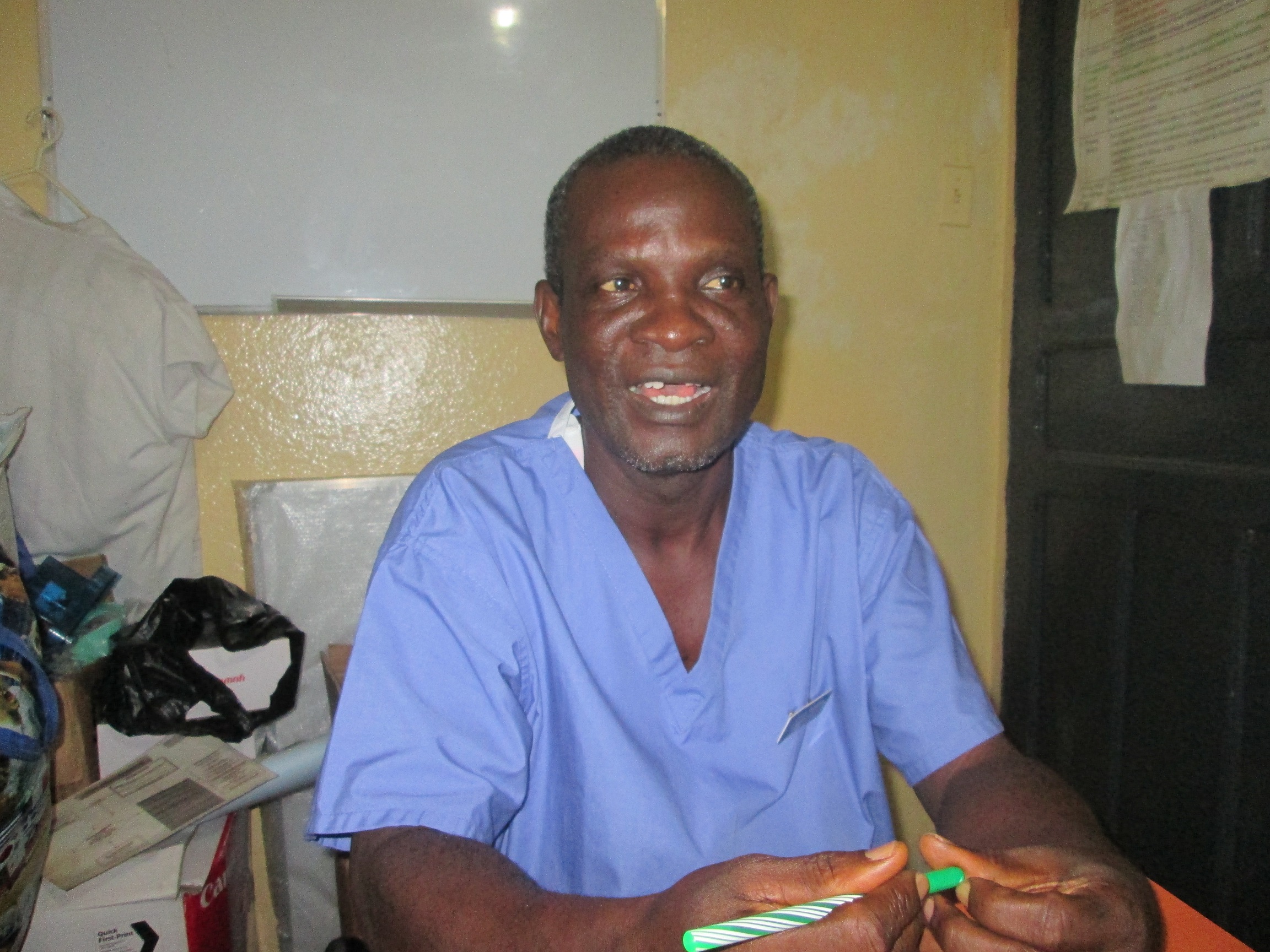
“This is my profession,” Shakpeh says beating his chest with glee, pride shining through his eyes. “I have wanted to be a nurse since I was a kid. This is the only thing I have passion for, so there was no chance I would run from Ebola. I had to keep on with my passion.”
Not to say that it was all rosy; he had his own close shaves with the viral disease.
“When our colleague brought Ebola to the hospital, many people did not know about the virus, so a lot of people came into contact with her. Forty-six staff actually came in direct contact with her; I did the contact tracing,” he recalls.
“There were five persons who actually came down with Ebola at this hospital; three (Dr. Mutoro and two physician assistants) survived while and two nursing aids died. And these were all people I worked with, so you can imagine how close I was.”
He came even closer with Dr. Dada, the ex-chief medical director, who had moved on to JFK after serving out his five-year term at Redemption.
“During the Ebola crisis, Dr. Dada would come to visit us. He would advise us, telling us we had to be very careful because the disease is very deadly.
“Even the Friday before we got to know that he was infected, he was at this hospital. He entered this office and asked me for napkin. I opened my drawer and gave him. The next week, we got to know that he was infected. For me, that was close. When he died, everyone at this hospital was confused.
“My nephew had the virus and came here. I took him to the lab for tests. He did not survive it. Three days after his death, his girlfriend started showing symptoms. She came here as well. Unfortunately, she also died. And I was here all through, so you can imagine how close I was to the virus.”
STRENGTH OF A WOMAN
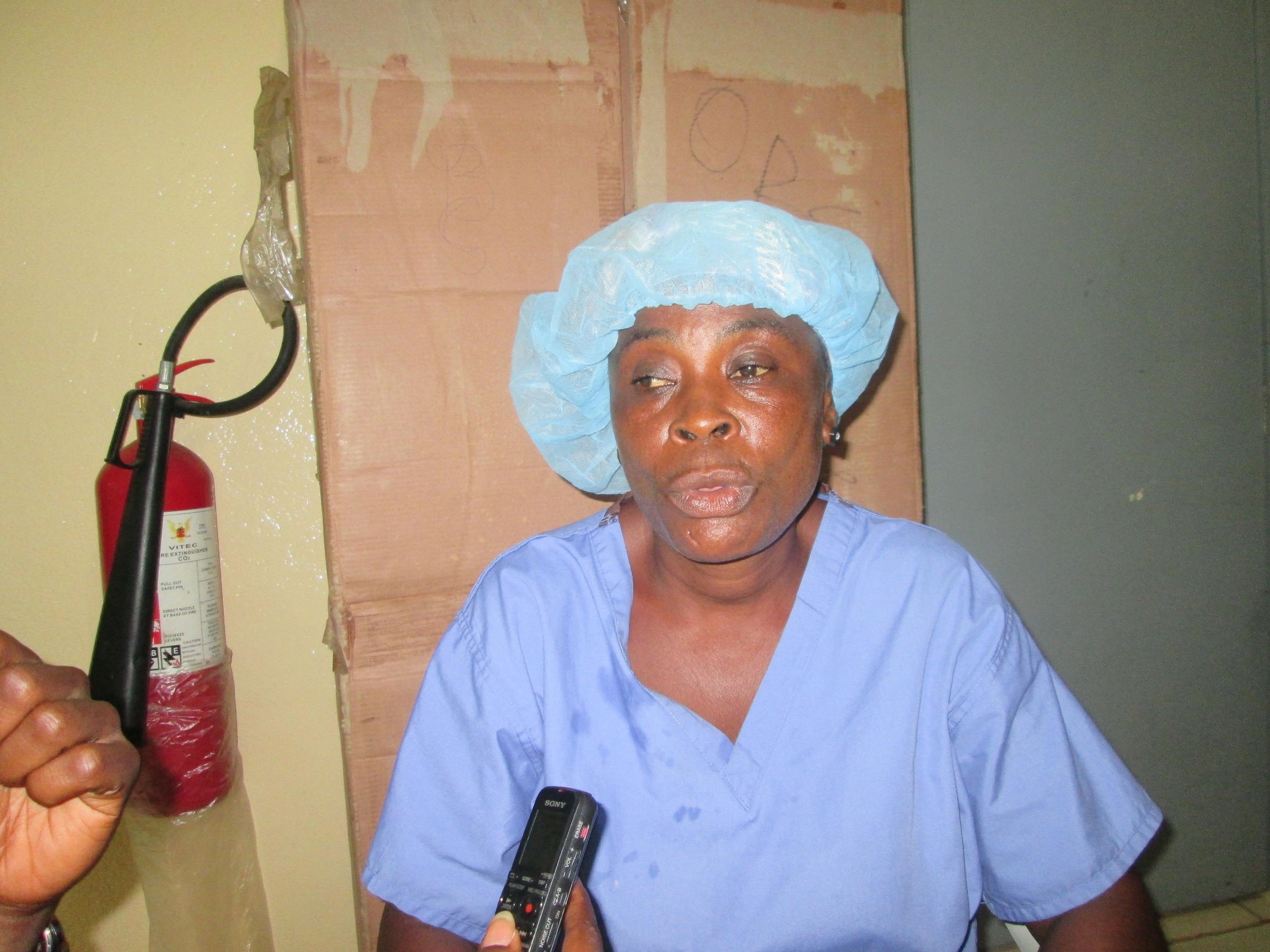
There is a certain fearlessness about Josephine Toe that is not at all feminine. Yet the 44-year-old is a mother of six – five boys and a girl. In her 17 years at Redemption, her job as a staffer of the hygiene department has been cleaning and spraying the wards before the arrival of the nurses and doctors. As Ebola raged, her job meant she had to enter the ETU daily. Not once did it cross her mind that she could be infected.
While a few health workers steered clear of hospitals during the Ebola outbreak, she worked at not one but two hospitals as a cleaner and never considered quitting. Once, an Ebola victim attempted to deliberately infect her with the virus. It didn’t stop Toe, who says “life has no space for cowards”, from turning out at the same hospital the following day.
Listening to her story makes it so easy to see the source of the fortitude with which she goes about her life. For 10 years, she has been widowed. And on her frail shoulders lies the burden of raising six children.
“The first day when Ebola happened, it happened here at Redemption and we were at work when it started. So everybody scattered,” she recalls. “But then, Allen Clinic was opened so I applied. They hired me and I started working there, too.”
Of the closest she came to the virus, Toe is unmistaken in her choice. “It was the one day in September 2014 when I went to clean up the ETU, then one patient wanted to grab me,” she says, gesticulating by wrapping her arms round her interviewer. “But I retreated; I say ‘no way!’ And it didn’t stop me from continuing my work that day or any other.”
While other families feared the worst and distanced themselves from Ebola victims, Toe used the challenge of the virus to bond better with her children, whom she describes as “all I have”.
“My children admitted that they needed my help, so I lectured them on the virus,” she says. “I also needed their support to continue working at the ETU, and they stood by me. Till the end of the crisis, none of us got infected.”
She looks back at Ebola’s ruthless reign and wishes Liberia didn’t have to experience all that tragedy.
“Well, I saw people die. I lost a friend who was also a cleaner, even though she did not pick it at this hospital,” she says. “The ETU was also a scary place for the patients. Many times, when I entered wearing my PPE, they would scream, ‘a spirit is coming’. But I would tell them: ‘I’m not a spirit. I’m a human and I have come to help you.’”
A COMPLETE RISK
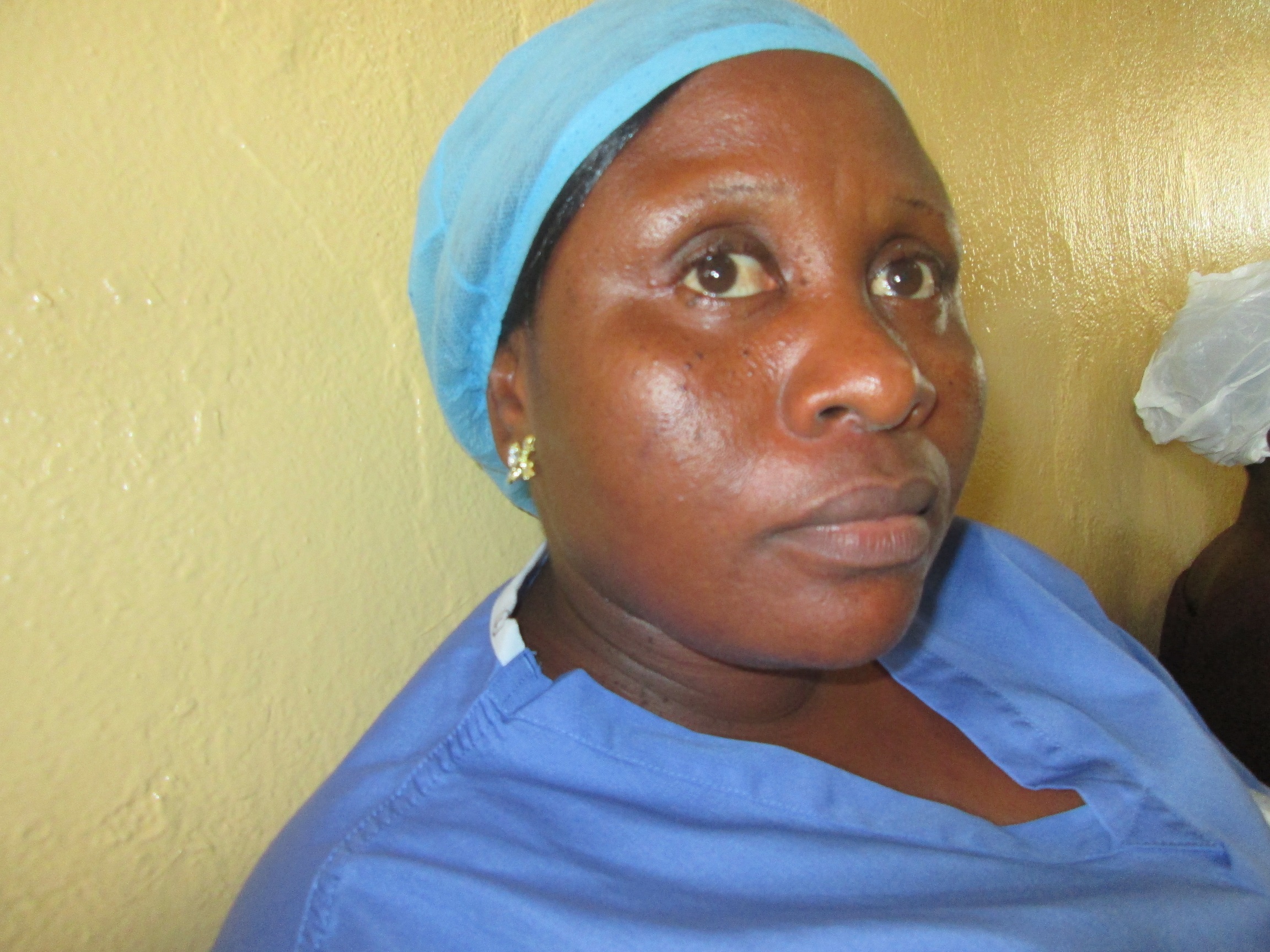
When nursing aid Edwinan C. Badi first heard in June 2014 that Ebola had come to Redemption Hospital, she was devastated and started seeking information on how to protect herself. But on the day she learnt of the death of the index case, she fled. And just as she began to mull the idea of returning to work, she was hit by news that her friend, Tina Toe, who came in contact with the index case, had died. She felt so “terribly afraid” that she could not go to work.
But as aid began to reach Liberia, Badi summoned courage and decided to join the fight.
“From the day I heard that our colleague Esther had died, I ran away and I didn’t come back,” she says timidly.
“But I returned in September to join the ETU at Allen Clinic, because by then, we were protected. We had protective gear. Of course, health workers still contracted the disease even with protection, but the difference was that I at least knew I had a chance. Back in June, I had no chance!”
Despite the protection, working at the ETU left Badi always fearing for her life. It also weakened her bond with her children.
“When I first started, I couldn’t allow my children come near me. I slept outside the house and they slept inside. It was very terrible.”
She recalls an encounter with a patient who grabbed her unannounced from behind and requested for water.
“I calmed him down and gave him water, then I went out and hurriedly sprayed myself. I mistakenly sprayed my face and I fell down,” she says chillingly.
“When I started feeling ill two days later, I told myself that I had caught the virus. I voluntarily submitted myself to a test, and it turned out that it was nothing.
“It was terrible and horrible but for me, I felt I was just blessed by God. I felt I was in his wings of protection. It was a risk, a complete risk.”
AN UNLIKELY VICTIM
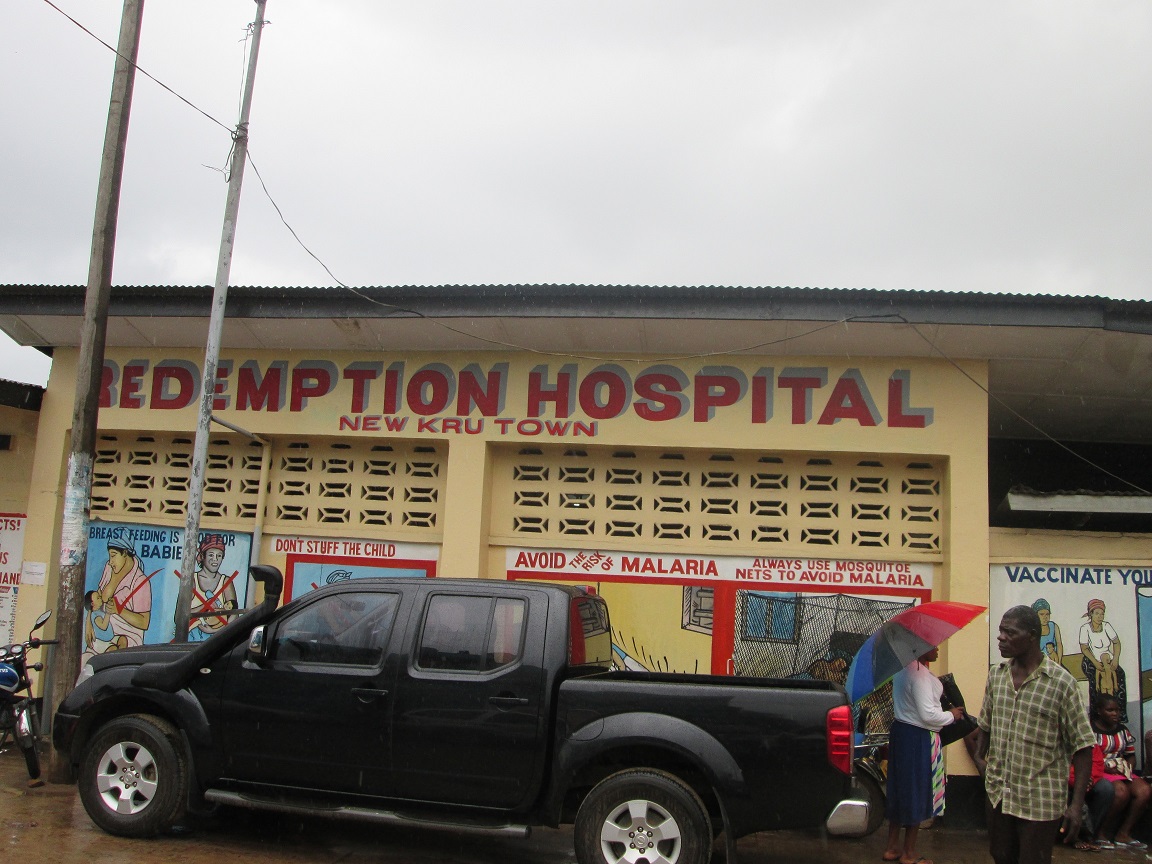
Badi still has pity for the families ruined by the virus and acknowledges that for many years to come, life will never be the same for them.
“I remember a pastor and his entire family who were admitted at the ETU. Only his two-year-old son survived. The pastor, his wife and three children all died. Only the baby survived.
“It was very terrible to see. Very pitiful. The mother was pronounced dead on arrival. Then the children died one after the other. The father was the last to die. For days, I could not stop crying; I kept on wondering who would take care of the baby.”
But the death that “crushed” her the most was that of middle-aged Alfred Johnson, a gate keeper at the hospital.
“He was so careful that no one understood how he contracted the virus,” she laments. “In fact, at the gate, if you needed a number, he would not hand you any paper or collect it from you either. If you asked him why, he told you he didn’t want to get the virus.”
But Badi was on a ward round at the ETU when he suddenly ran into him, disconsolate and anticipating death.
“I was shocked to see him at the ETU. From the day he was announced positive, he refused to eat or drink. He just couldn’t accept the result. He later died in my presence. It was terrible. Very terrible.”
ECSTASY TINGED WITH SEETHING RAGE
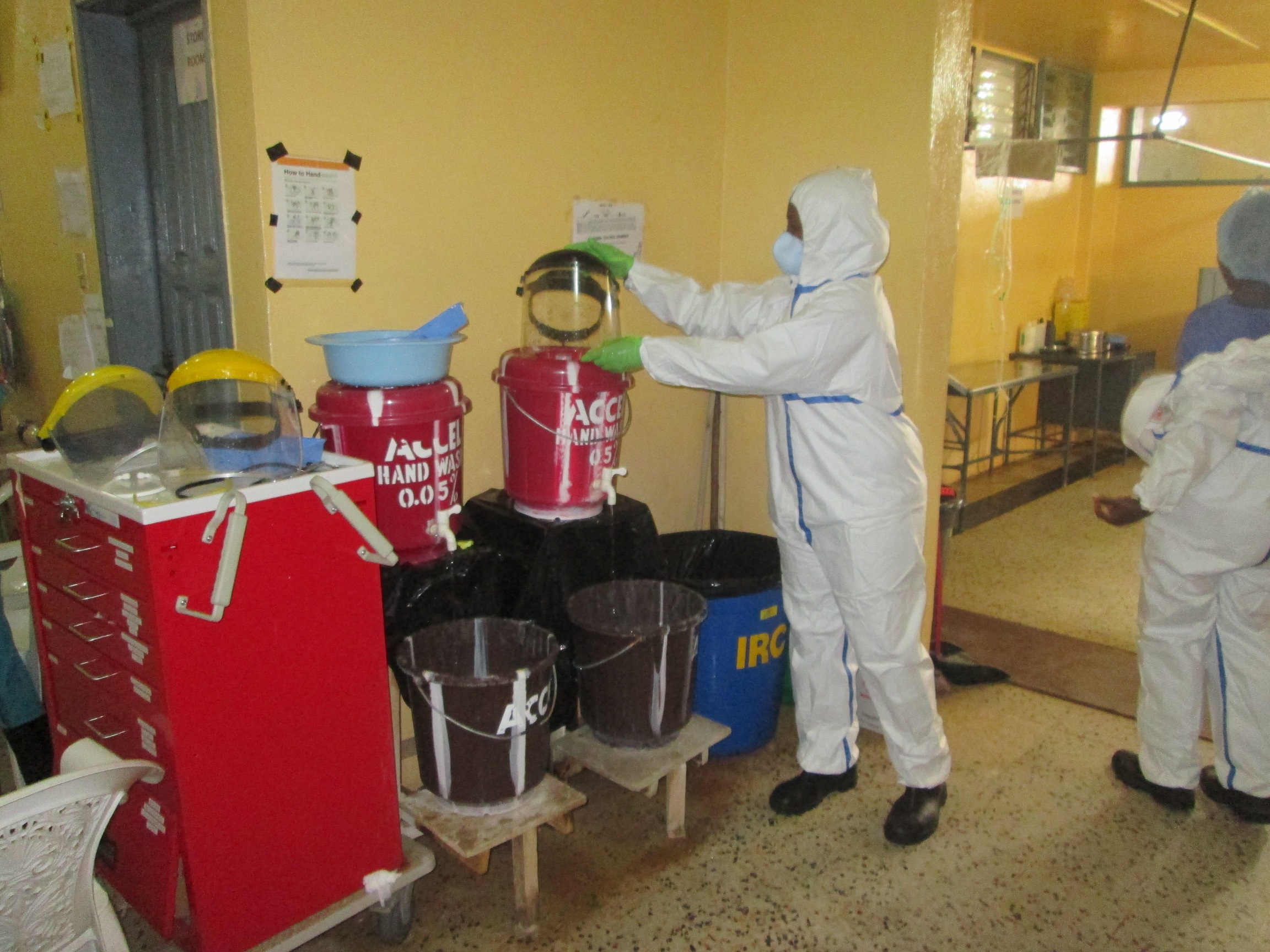
On May 9, 2015, the WHO declared Liberia Ebola-free after 42 days without a new case and after the death of more than 4,700 people. For the health workers who were involved in the fight, it was ecstatic joy. The virus did make a brief return on June 30, but it was too little too late to dampen the joy of the workers.
“I was very happy. Very happy,” says Kolu Mulbah, a nurse who stayed at Redemption to help fight the virus. “I was very happy because it was victory at last.”
Badi, too. “It was one of my happiest days, I was very happy,” she says. “I was praising God because it was terrible that Liberians were not being killed by guns anymore but by a deadly virus. So we were all happy to be free.”
Shakpeh could not hide his joy either, his face lightening up at the thought of having to capture the emotion he felt on the day.
“It was so joyful,” he says. “All of us were rejoicing and dancing. We were all very happy.”
This feeling of happiness was pervasive among the group, but so also was the general feeling of under-appreciation by the government, worsened by incomplete or non-payment of hazard benefits.
Shakpeh, who says he has “been in the system long enough to know how things work”, seems to be handling it with equanimity.
“Those of use who did not work directly in the ETU, they still owe us two months hazard benefit,” he says. “The thing is that it is a policy issue. And in Liberia, I know from experience that things take time to work out.”
But Mulbah is too disappointed to speak in like manner.
“We attended the programme held to celebrate the freedom, and the government discouraged us because we who fought Ebola were never commended. There was no mention of health officers. They only praised themselves,” she laments.
“But apart from that, something else they also did that really discouraged us is that despite working at the ETU, some of us have not received our hazard benefits. To be frank with you, if one Ebola case should appear now, I will go and sit down somewhere. To be frank with you, I will not work, because they treated us as if we were wrong to work at the ETU.”
NEVER AGAIN
With all four new cases discharged at the end of July, Shakpeh sees no chance of another Ebola epidemic, based on the amount of information that is now available.
“When Ebola time came to this hospital, we didn’t really know what to do, so lots of people were infected. But I know Ebola is gone for good,” he says with a big grin.
“From now on, we are already aware of what to do to avoid it. All we need is to take those things into practice.”

